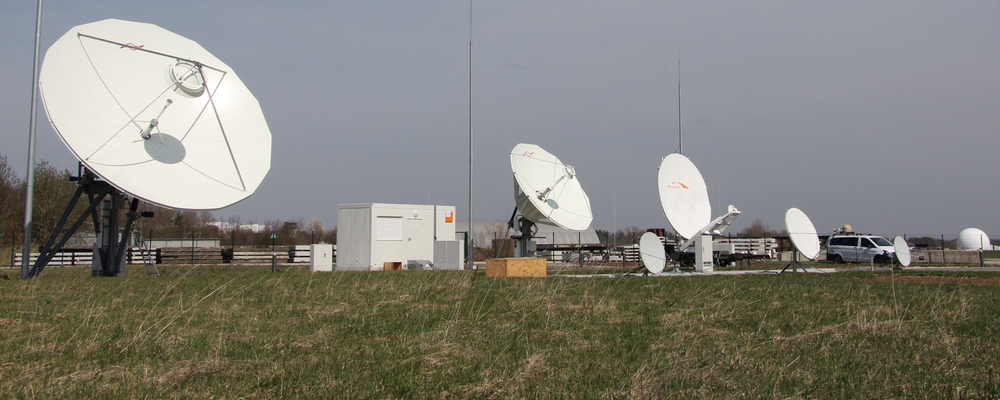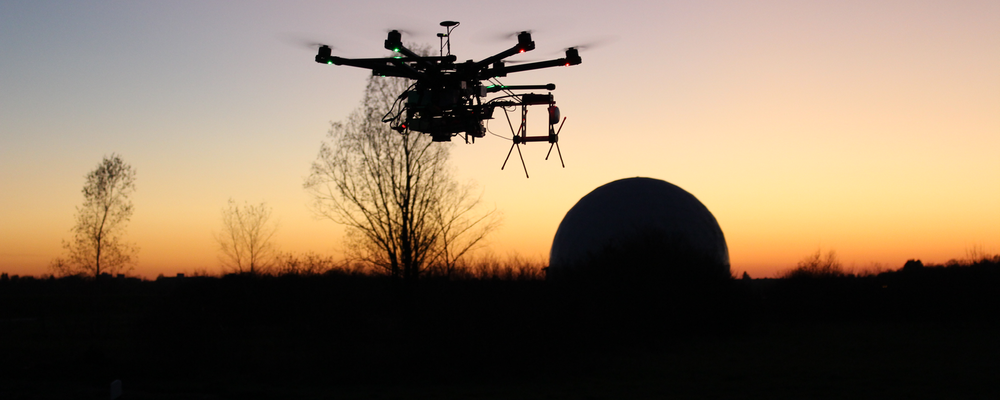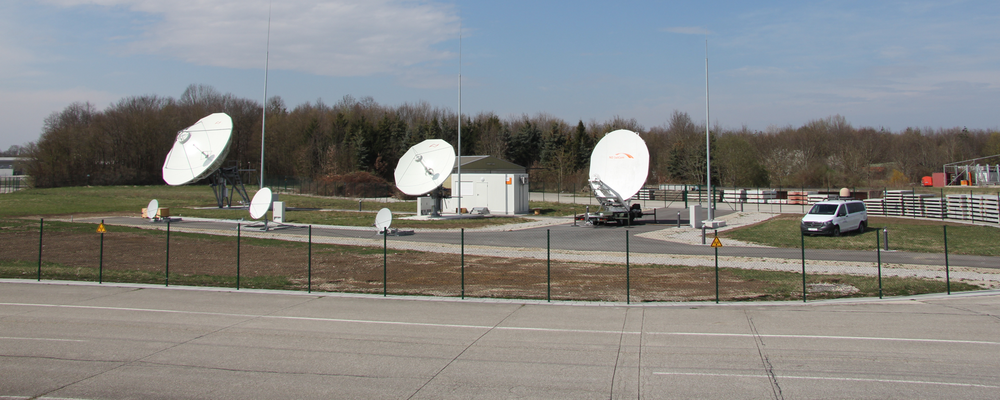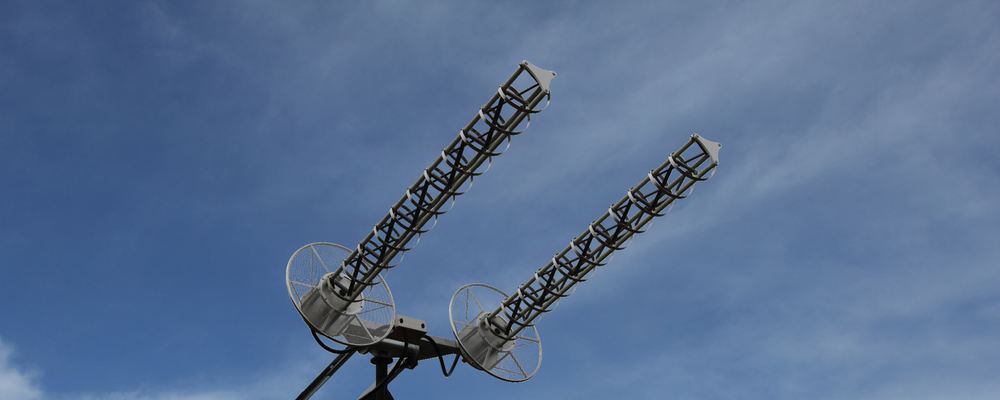 - Prof. Andreas Knopp and Prof. Gunes Karabulut Kurt at the award ceremony
Technical Recognition Award 2024
13th June, 2024: At the IEEE International Conference on Communications in Denver (USA), Prof. Andreas Knopp received the 2024 Technical Recognition Award from the Satellite & Space Communications (SSC) Technical Committee of the IEEE Communication Society for his outstanding research contributions to the use of multi-antenna technology for satellite communications. In her laudatory speech, Prof. Gunes Karabulut Kurt, Chair of the SSC Technical Committee, acknowledged the important contributions made by Prof. Knopp's research group at the University of the Bundeswehr Munich (UniBw M) over the past decade. Thanks to multi-antenna technology, the energy per transmitted bit can be reduced, making data transmission via satellites more energy-efficient and competitive. In addition to numerous publications, the research results have been published in important patents and transferred to a spin-off company. Knopp is currently leading one of the largest European initiatives for research into the next generation of multi-antenna systems based on distributed systems in the space and ground segment. The relevance of Prof. Knopp's research is confirmed by the fact that the satellite industry is considering multi-antenna technology for its future products and has transferred it to industrial research and usability.
Prof. Knopp's nomination was supported by numerous experts from research and industry. Overall, in all his years at UniBw M, Prof. Knopp has proven his ability to bring groundbreaking ideas from a low level of technological maturity to a level of maturity that enables knowledge transfer to industry. Building such a bridge between excellent academic research and industrial innovation is a challenging undertaking that Prof. Knopp's research group has mastered with great success.
|
 - Members of the "Cybersecurity in Space" expert group met in Berlin
Space expertise meets know-how from the cybersecurity sector.
The "Cybersecurity in Space" expert group meeting of the German Federal Office for Information Security (BSI) took place from May 13 to 15, 2024. Representatives from industry, public administration and research met at Infodas Berlin office to discuss a new status report.
Their mission: to develop measures to strengthen the cyber resilience of space systems. Since 2021, the Alliance for Cybersecurity has been promoting innovative and security-relevant solution measures to secure digital communication in space through the working group. Following the successful publication of the IT baseline protection profile for space infrastructures and the technical guideline for space systems, the expert group has now turned its attention to the IT baseline protection profile for the ground segment. It is to be understood as a recommendation and is intended to support space operators in the creation and implementation of an information security concept based on the IT baseline protection methodology in order to significantly increase the cyber resilience of space systems.
At our institute, the focus is particularly on the link layer, which is currently being further secured in international cybersecurity standards such as the "Security in space systems lifecycles" (ECSS-E-ST-80C DIR1) and the IEEE P3349 - Space System Cybersecurity Working Group. The "Cybersecurity in Space" experts plan to incorporate their national guidelines into international standardization in the near future.
|
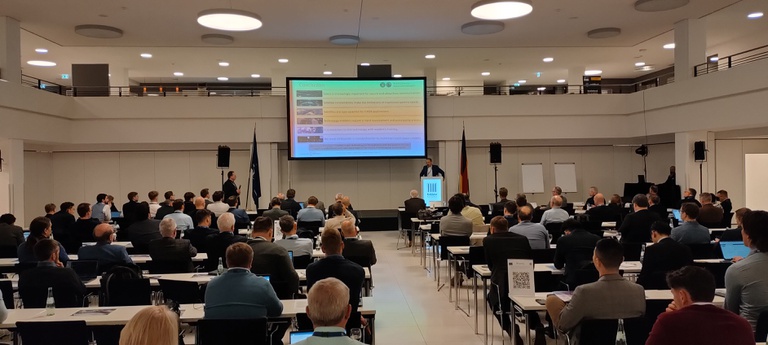 - © Universität der Bundeswehr München/Tuzi
International Conference on Military Communication and Information Systems (ICMCIS) 2024
April, 2024: The International Conference on Military Communication and Information Systems (ICMCIS) took place on 23 and 24 April 2024 in Koblenz, Germany, in conjunction with the 53rd IST Panel Business Meeting. Held as an STO Information Systems Technology (IST) Panel activity (IST-205 RSY), ICMCIS 2024 was organised by the Federal Office of Bundeswehr Equipment, Information Technology, and In-Service Support (BAAINBw) in Koblenz, with support from Fraunhofer FKIE. ICMCIS covers important scientific topics and technologies relevant for defence C4I (Command, Control, Communication, Computing and Information).
Prof. Andreas Knopp held a keynote speech about the tactical communications in the satellite mega-constellation era. Space is ever more important for secure and ubiquitous communications. While heritage systems have been bandwidth and delay limited, covering speech and low data rates for command & control (C2), constellations of satellites help to make limitations vanish. Satellites are now essential for C4ISR (Command, Control, Communications, Computers, Intelligence, Surveillance and Reconnaissance) applications.
Prof. Knopp said: “We see that there are some critical technologies to be developed and to be made available to make this happen. We cannot lose track with our enemies, so we need far more rapid development processes including short development and demo cycles in the relevant environment. It is about rapid prototypes in space, connecting technology with academic training. We must also work together in standardization, where joint space projects can act as enablers.” His main message is that “We are on the edge of some major technological throughputs and disruptions that we need to understand and take advantage of for future technological sovereignty.”
|

